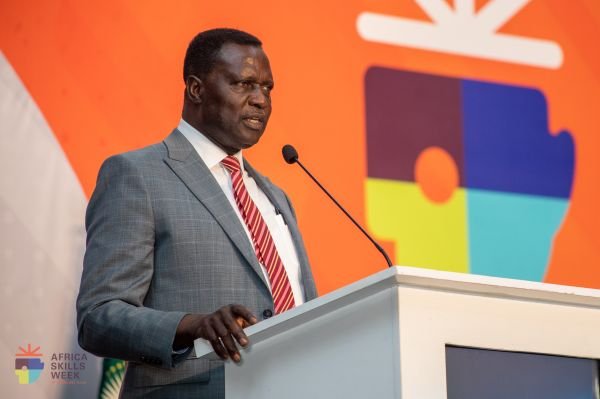The Minister for Education, Ghana, has reiterated the critical role of Technical and Vocational Education and Training (TVET) in Africa’s industrialization drive during his address at the 2024 Africa Skills Week.
The event, hosted in Accra, saw high-level stakeholders gather under the theme, “Boosting Excellence and Innovation in TVET: Interregional Policy Dialogue and Global Agenda Setting.”
In his address, the Minister emphasized that TVET is a cornerstone of President Nana Addo Dankwa Akufo-Addo’s vision for a “Ghana Beyond Aid,” underscoring that a skilled workforce is key to economic independence and sustainable development.
"Our government recognizes that industrialization is not possible without the technical skills to drive it," the Minister stated. "This is why we have prioritized TVET reforms, ensuring that technical and vocational education is accessible, affordable, and relevant."
The Minister highlighted the success of Ghana’s Free TVET policy, which has dramatically increased enrolment and transformed perceptions of vocational education. "TVET is no longer seen as a last resort but as a premier path for young people who want to contribute to the development of their nation," he said.
He noted that the government has invested heavily in upgrading TVET infrastructure, modernizing curricula, and expanding access through initiatives like the Ghana Jobs and Skills Project and the Competency-Based Training (CBT) model.
He also praised the role of the Sector Skills Bodies (SSBs) in ensuring that TVET curricula are aligned with industry needs, particularly in key sectors such as automotive, oil and gas, ICT, and renewable energy. "We have bridged the gap between education and industry," the Minister said. "Our students are now gaining the skills that industries need, ensuring a smooth transition from training to employment."
The Minister called for increased collaboration among African nations to address shared challenges, particularly in youth unemployment and the need for lifelong learning. "Africa must unite in its approach to skills development," he urged.
"By sharing best practices and fostering interregional cooperation, we can build a skilled workforce that drives innovation and economic growth across the continent."
The Minister concluded by reaffirming Ghana’s commitment to international TVET standards and policies, including the UNESCO Strategy for TVET 2022-2029, and urged global partners to continue supporting TVET initiatives that empower African youth.
"TVET is the future of work, and Ghana is leading the way," he declared. "We will continue to champion the role of skills in shaping Africa’s future."









